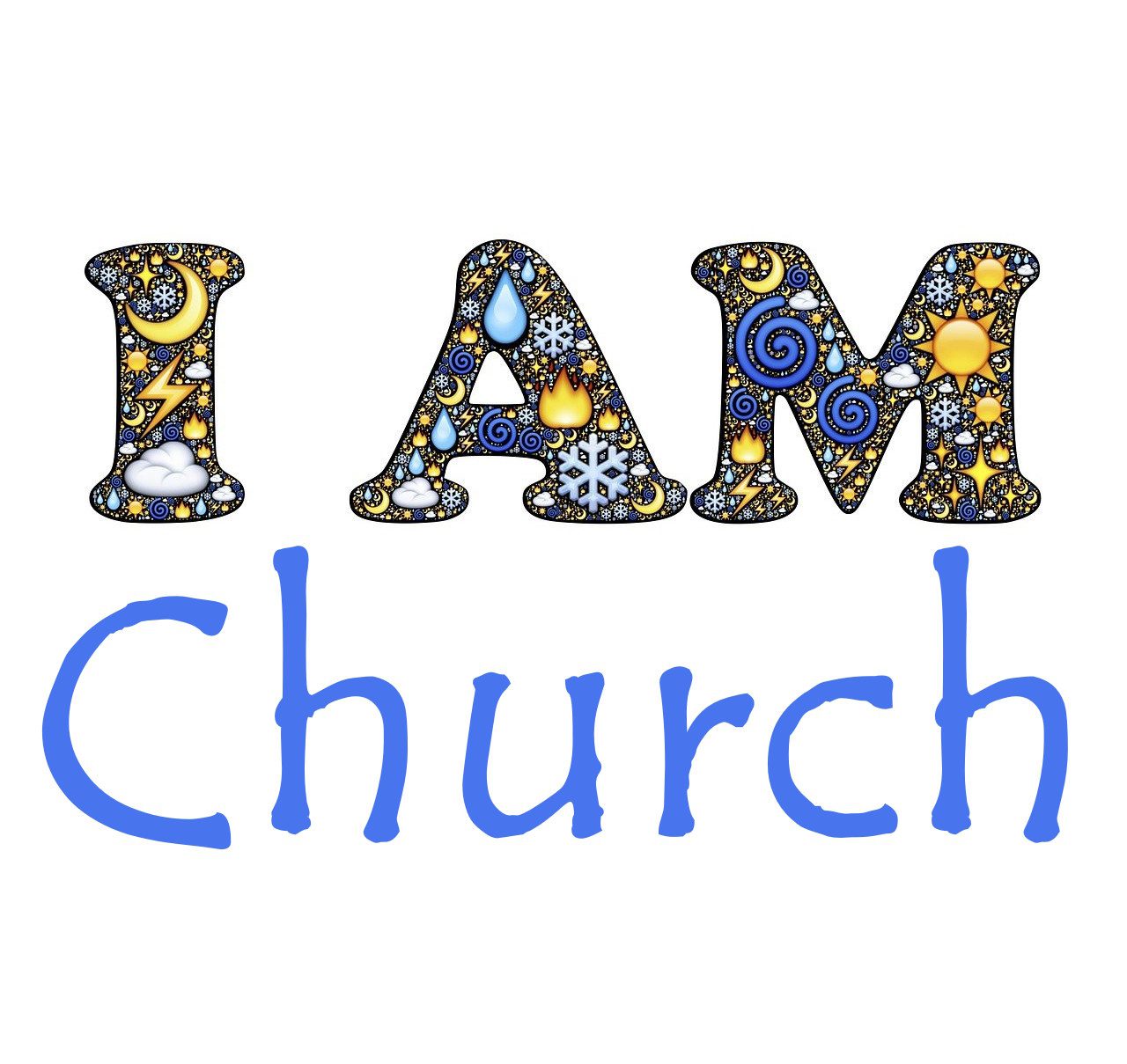A congregation of the United Church of Canada

Yr A ~ Easter 4 ~ 1 Peter 2:2-10
What do you immediately think of when I say the word Church? This place, right? Or one just like it. When we say ‘church’ we think ‘building’. But we also mean ‘worship’ when we say church. If you say, “I’m going to church on Sunday” you probably mean that you’re attending and participating in a worship service. “I’m going to ‘the’ church” means you’re coming here to work – to share in ministry together. But “I’m going ‘to’ church” usually means worshipping. We also know that church means the people who are gathered together. “Faith United is a great church!” True. But the person who says that doesn’t really mean that Faith has a nice building (which we do) – they mean that the people who comprise Faith United are a good group of faithful people.
In fact, it’s that third meaning of church that the word originally came from. In the earliest Jesus communities there was no stately building to call church. And the worship services they gathered for were primarily built around a shared meal more than a liturgical experience. No, in the beginning the word ecclesia in Greek meant a gathered group of people. Much later the derivation of kuriakon doma – the Lord’s house – emerged, and got shortened to kurikon and then evolved into Old English as cirice, and finally our word ‘church’.
So, ‘church’ is a complex word that simultaneously holds the meaning of being a place, an action, and a people. And I’m going to add a fourth meaning. Before a church can be any of those other things, ‘church’ has to be a person! You are a church. You. You are a temple in which the Holy Spirit resides. You are a place in which worshipping God happens. You are a loving force in the world.
And you are part of a larger organism, called the body of Christ, at the same time. If you aren’t a church, we can’t be church together. The body is made up of living, functioning, contributing cells – parts – and each part has to be alive in itself in order to be part of the whole.
There’s a character from the Marvel comics universe called Groot. (Some of you are way ahead of me.) But if you aren’t familiar with it, Groot is an alien being who resembles a tree trunk. The only words Groot ever says are…[listen for congregation to say it]… “I am Groot!” Interestingly, Groot means many different things when Groot says, “I am Groot.” That’s my inspiration for today. Except you and I are not Groot. We are Church. So what does ‘Church’ obviously say? …… “I am Church!”
This is not a new idea. Well, the Groot part might be kinda new, but the idea that you, individually, are ‘church’ is not new. 1 Peter 2:4 Come to him (Jesus), a living stone, though rejected by mortals yet chosen and precious in God’s sight.
Jesus is a living stone. On the surface that’s an oxymoron, but I don’t think the metaphor is actually all that difficult to understand. Picture the giant stones of the Jewish temple in Jerusalem. They were fixed, thought to be permanent. But they crumbled! Jesus taught his disciples that the temple is not the seat of God’s presence in the world – your heart is. You are God’s holy temple. A ‘living stone’ represents a paradigm shift from a physical reliance on an external spiritual home to being personally built into an internal spiritual home. Jesus didn’t start a church; he started a movement. A movement of individuals!
We are living stones! Just like Jesus! So, even though we might look like everyone else on the outside, on the inside we’re different. We are living stones. We’re not dead, we’re alive, and because of that the world looks different to us. It’s not that we see different things; we see things differently! And we act differently. Justly. Compassionately. Lovingly.
1 Peter 2:5 And like living stones, let yourselves be built into a spiritual house, to be a holy priesthood, to offer spiritual sacrifices acceptable to God through Jesus Christ.
Let yourselves be built. Not “build yourself into a spiritual house” but let yourself be built!
Christ is the rock – the living stone – the cornerstone – the foundation– and we are to be built on that foundation. Not our buildings – us.
But living stones don’t build themselves into spiritual houses – into temples of God’s presence – they let themselves be built, by the Holy Spirit, from the inside out. What’s our role? Not passive, but not in control either. To ‘let yourself’ means to get out of the way more than trying to achieve something.
I’ve shared this image before, but it’s so good it’s worth hearing again. A French mystic named Francis de Sales compared our relationship with God to a mother nursing her baby. The baby (us) can use all its strength and resources and efforts to try to get what it wants, milk, but it can’t hold itself in the right place to nurse. The mother has to snuggle the child in and hold it tight. Often the baby’s efforts are actually counter-productive – but the mother is patient and loving and helps the child to nurse. The child yearns for the closeness but cannot achieve it on its own. The child must yield to the mother and receive what she gives and be held in her love.
1 Peter 2:2-3 Like newborn infants, long for the pure, spiritual milk, so that by it you may grow into salvation – if indeed you have tasted that the Lord is good.
Like the nursing baby we sense what we want but we can’t put it into words, so we flail around desperately trying every spiritual trick in the book trying to find what we need – not realizing that what we need is to get out of our own way – to stop trying to control everything – to let ourselves be transformed.
Ok, so “I am Church!” – I’m being built into a spiritual house – what for? What difference does it make? What do I do with that? Listen to verse 5 again:
Like living stones, let yourselves be built into a spiritual house, (why?) to be a holy priesthood, to offer spiritual sacrifices acceptable to God through Jesus Christ.
Let me unpack that a bit.
If you are a church, a living spiritual house, then you have quite a calling to fulfill. Martin Luther called this the “priesthood of all believers”. What does that mean for you? I guess it means that you shouldn’t solely rely on the formal priesthood to do the spiritual stuff for you. You are a church, and you are the ‘priest’ in your church. So you do all the priest stuff. You interpret scripture. You study. You pray. You evangelize! You figure out how to translate a feeling into a Way of Life. You offer support to those you’re in relationship with as best you can. You are a holy priesthood. “I am Church!”
And how about the last part of verse 5, the spiritual sacrifices question? What does a spiritual sacrifice do? Sacrifice means to selflessly offer – so do that – selflessly, spiritually, offer your ‘self’ (your time, your attention, your awareness, your intellect, your talent, your passion, your conviction, your heart, your caring) offer it all to God.
There’s quite a difference between going to ‘the temple’ and having ‘the priests’ perform religious observances for you, and being a church yourself – being a living spiritual house made with living stones, and being your own priest, and offering your own spiritual sacrifices to God.
No, I’m not trying to talk myself out of a job. I’m saying that this place and my role exist to help build your temple, your ‘church’, and resource your priesthood and ministry through it – but, of course, it’s not just you alone.
The passage finishes with a pep talk about togetherness.
1 Peter 2:9-10 But you are a chosen race, a royal priesthood, a holy nation, God’s own people, in order that you may proclaim the mighty acts of God who called you out of darkness into God’s marvellous light.
Once you were not a people, but now you are God’s people; once you had not received loving-kindness, but now you have received loving-kindness.
“God’s own people” – literally, it translates as ‘a peculiar people’. Friends, you are a peculiar people. You are God’s people. You’re different. You are living stones. Somewhere along the way you experienced something very special; new life – resurrection – a new way to be. And now you have a new identity. “I am Church!”
And did you catch the part about proclaiming? In order that (so that!) you may proclaim the mighty acts of God who called you out of darkness into God’s marvellous light.
Churches, that’s you, proclaim. What? The mighty acts of God who called you out of darkness into God’s marvellous light. In other words, your own personal experience. You can only authentically proclaim what you yourself have lived and experienced – the mighty acts of God in your own life. You have an experience of renewal – of new life – if you didn’t you wouldn’t be here. Unless you’re here for fire insurance, in which case I’ve got bad news for you. We don’t sell that here.
Your ‘Church’ has a great story to proclaim. And the best part about your church is that because it’s built out of living stones those stones can move around. Church is everywhere you are, and church happens whenever you love. Your words, your actions, your love, all together make up your proclamation. Unfortunately, there are other ‘churches’ out there who are proclaiming something other than love, love, love – and it saddens me to say that their voices are louder than ours. We’ll talk more about that in two weeks. Today we’re focusing on how we are each, individually, a Church in the world. “I am Church!” Can you guess what next week is? We Are Church. And then it’s All Is Church.
But all of that stuff starts with the individual. You. A church of one. And the book called 1 Peter has some advice and encouragement for you:
Like newborn infants, long for the pure, spiritual milk, so that by it you may grow into salvation – if indeed you have tasted that the Lord is good.
Like living stones, let yourselves be built into a spiritual house, to be a holy priesthood, to offer spiritual sacrifices acceptable to God through Jesus Christ.
Who are you?
“I am Church!”
Yes, you are!
Amen.



